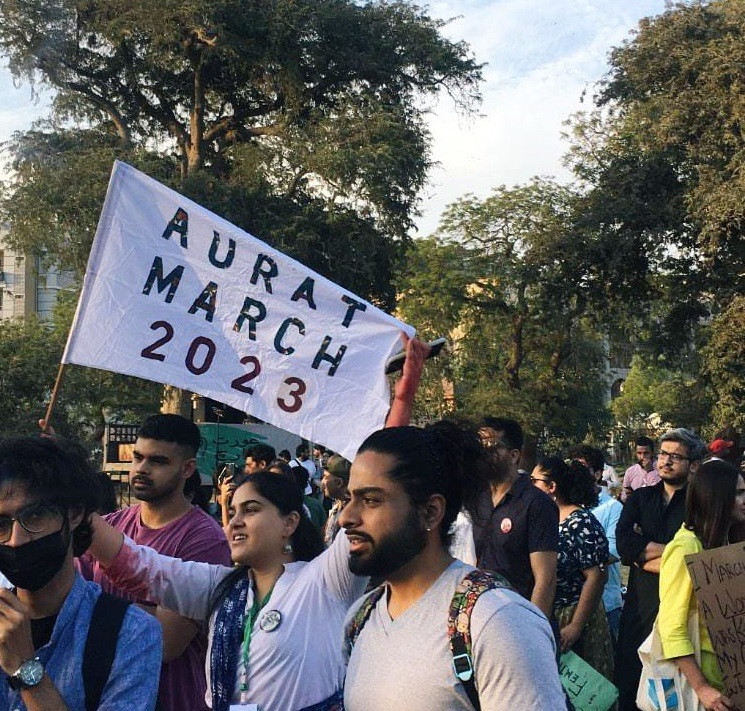
Placards at Aurat March tell stories of abuse, suffering, torture, neglect, discrimination, sexism and misogyny. As easy it is to turn a blind eye to abuse being inflicted upon someone else’s body, in someone else’s home, it becomes equally difficult to share one’s own experiences in a world that’s adamant on looking away.
The marching ground, thus, becomes a platform for raising awareness—a reality check that we are part of a cruel society, which disregards identities not conforming to its mainstream ideologies.
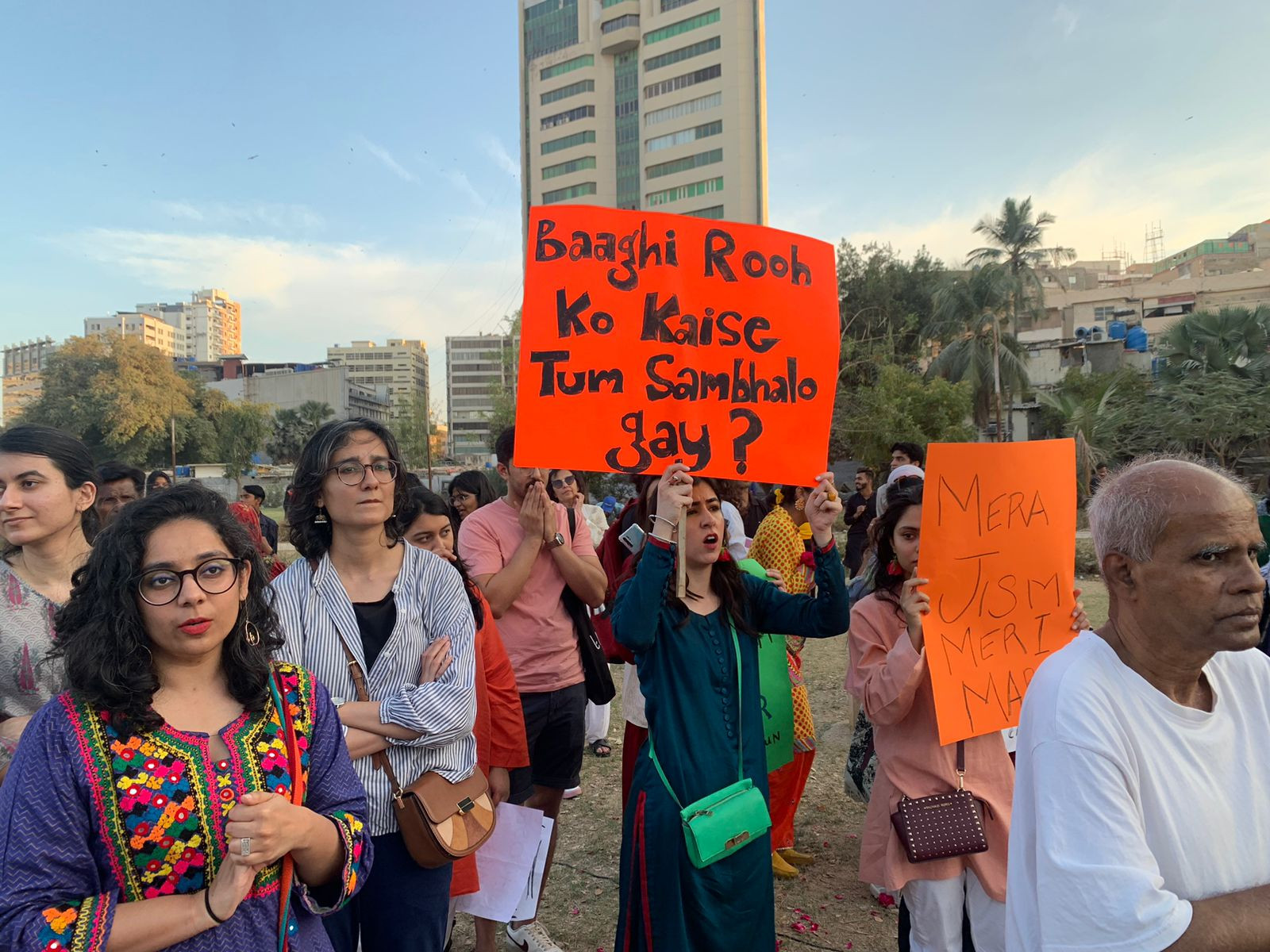
Religious and sexual minorities also join the protest to not only talk about the ways they’re discriminated against, but also remind everyone of the autonomy and power they should exercise as equal citizens of Pakistan.
While participants bring their haunting experiences forward, they also gather to celebrate the ones that are resilient, brave and most importantly, alive to fight patriarchy. Many, thus, call the Aurat March the ‘Feminist Eid’, and the night before it, chand raat—as women, transgenders, non-binary folks and male allies, all prepare for the grand celebration of bodies that are far too often associated with a man’s honour and still treated like filth.
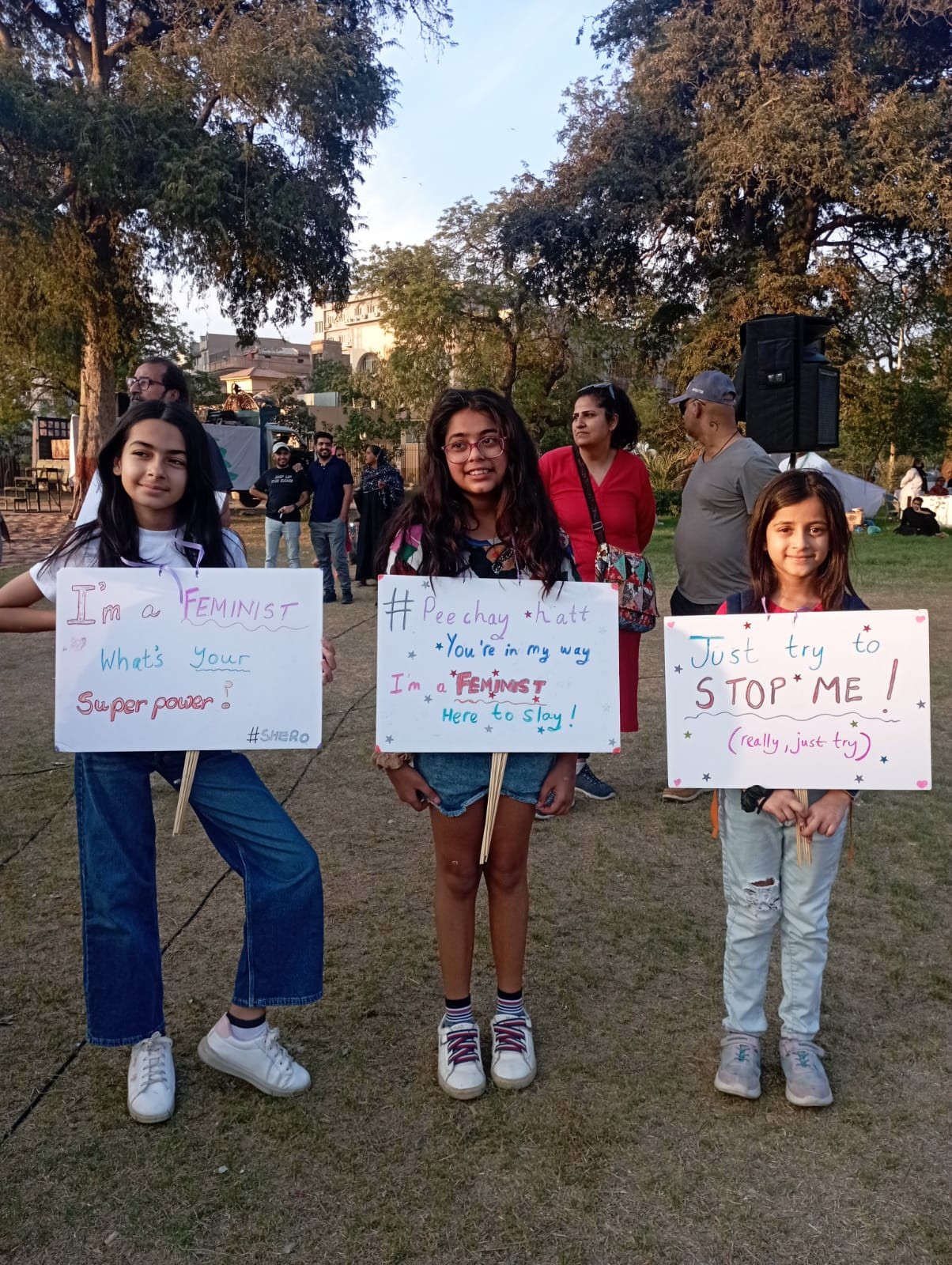 The aesthetics, therefore, are of great significance. Cotton sarees, neon glittery eye makeup, colourful pants, chooriyan, crochet bags, floral garlands, cultural dresses, printed t-shirts, and animated posters were amongst the aesthetics of Aurat March Karachi this year.
The aesthetics, therefore, are of great significance. Cotton sarees, neon glittery eye makeup, colourful pants, chooriyan, crochet bags, floral garlands, cultural dresses, printed t-shirts, and animated posters were amongst the aesthetics of Aurat March Karachi this year.
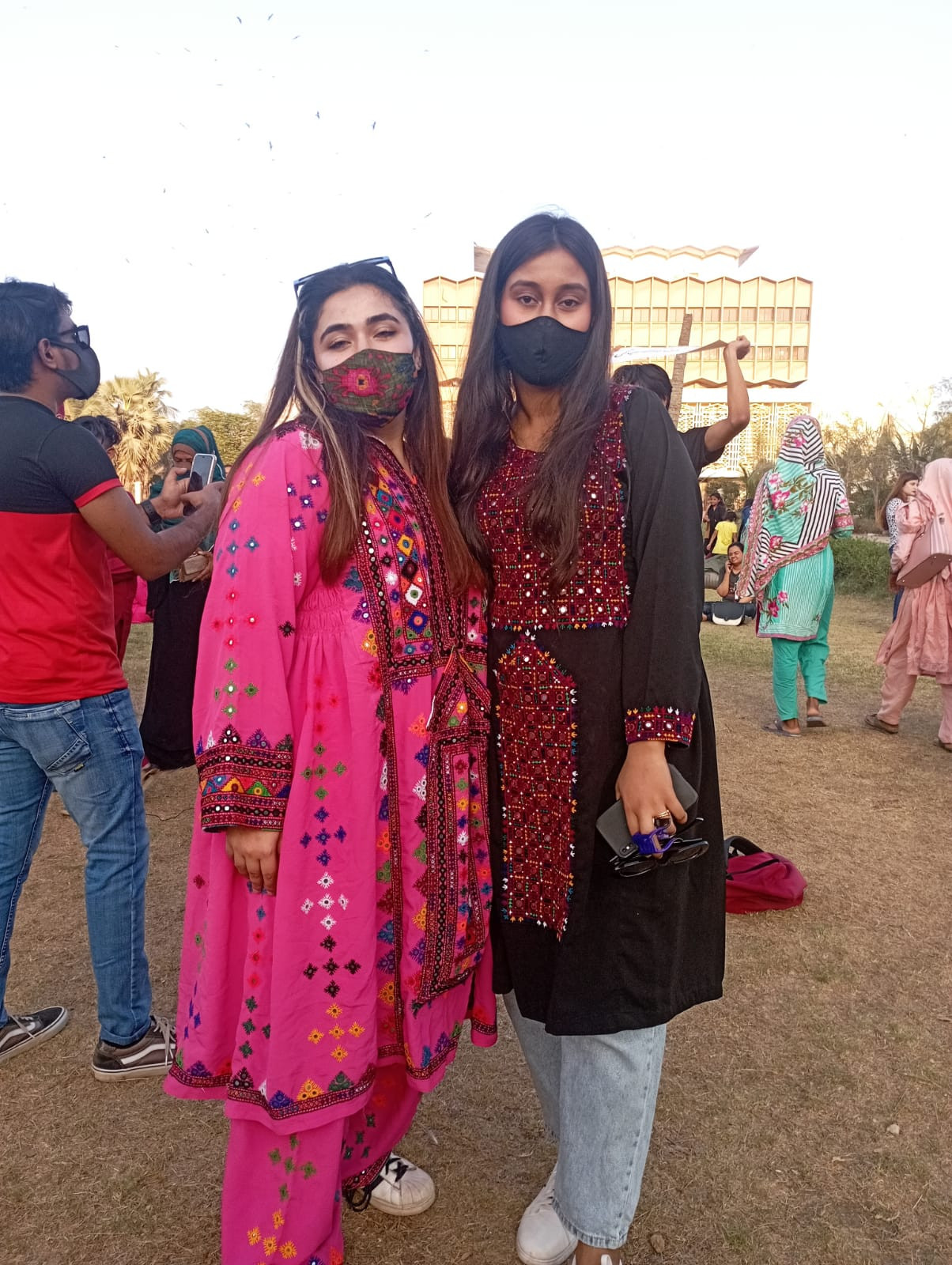
Participants used makeup, paints, clothing and accessories to represent their communities and identities—which remain suppressed all year long so as to not bring “shame” to their respective families.
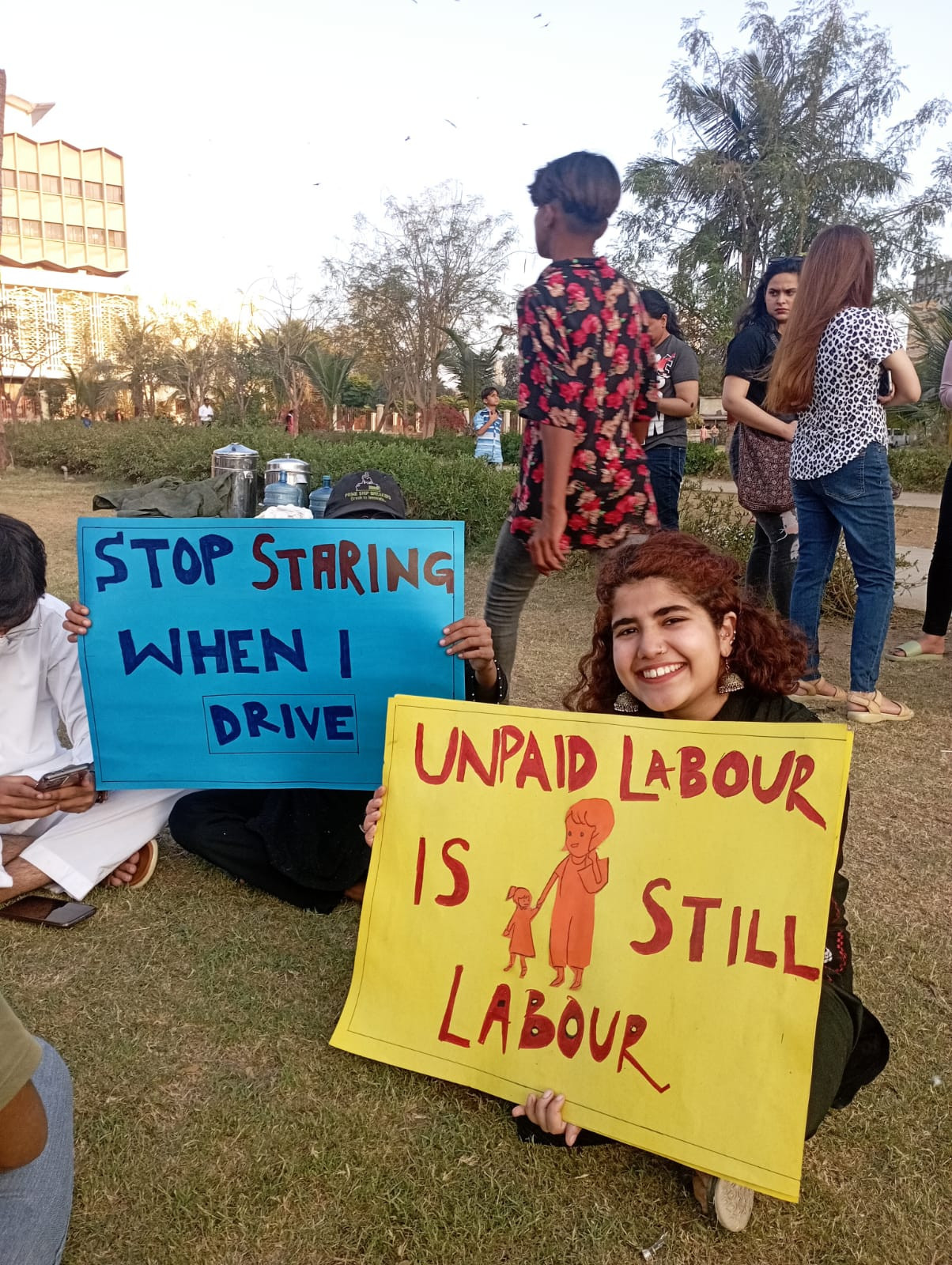 Hailing from the deserts of Tharparker, Hamraj Singh, a recent graduate of IBA held a placard for the young widows of Tharparker. Other than his message, his vibrant turban is what caught our attention. "I'm a Rajput, and this is a pagri that is mostly found in Rajasthan. There are many hues of turbans in our culture, so to represent the youth of Tharparkar I wore this vibrant headwear and presented the region's most pressing matters," he shared with The Express Tribune.
Hailing from the deserts of Tharparker, Hamraj Singh, a recent graduate of IBA held a placard for the young widows of Tharparker. Other than his message, his vibrant turban is what caught our attention. "I'm a Rajput, and this is a pagri that is mostly found in Rajasthan. There are many hues of turbans in our culture, so to represent the youth of Tharparkar I wore this vibrant headwear and presented the region's most pressing matters," he shared with The Express Tribune.
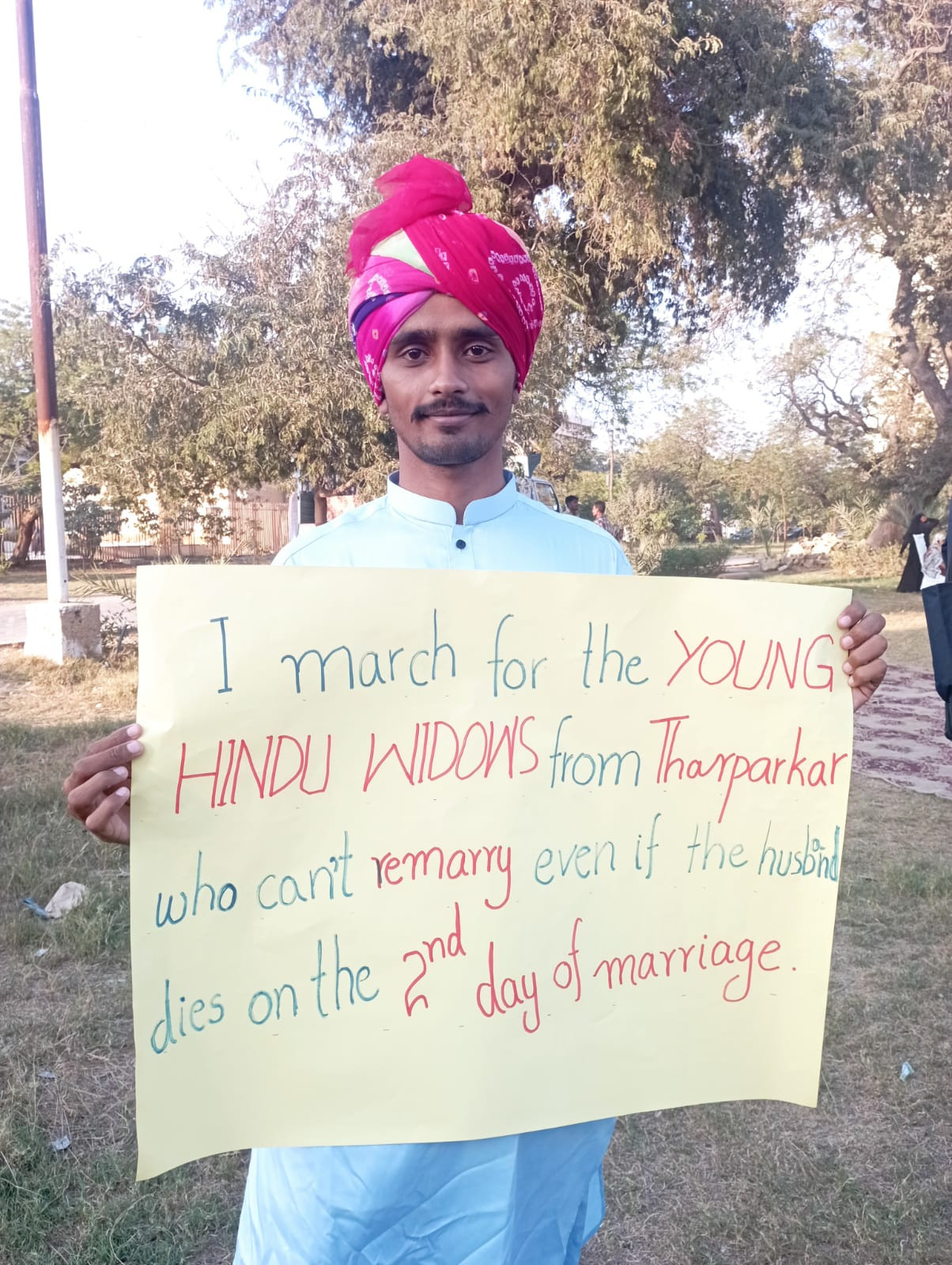 Misha Japanwala, an artist and designer who made waves by embodying fashion and art with her breastplates and moulds, addressed the female form and the unadorned beauty of the bare body, at the protest.
Misha Japanwala, an artist and designer who made waves by embodying fashion and art with her breastplates and moulds, addressed the female form and the unadorned beauty of the bare body, at the protest.
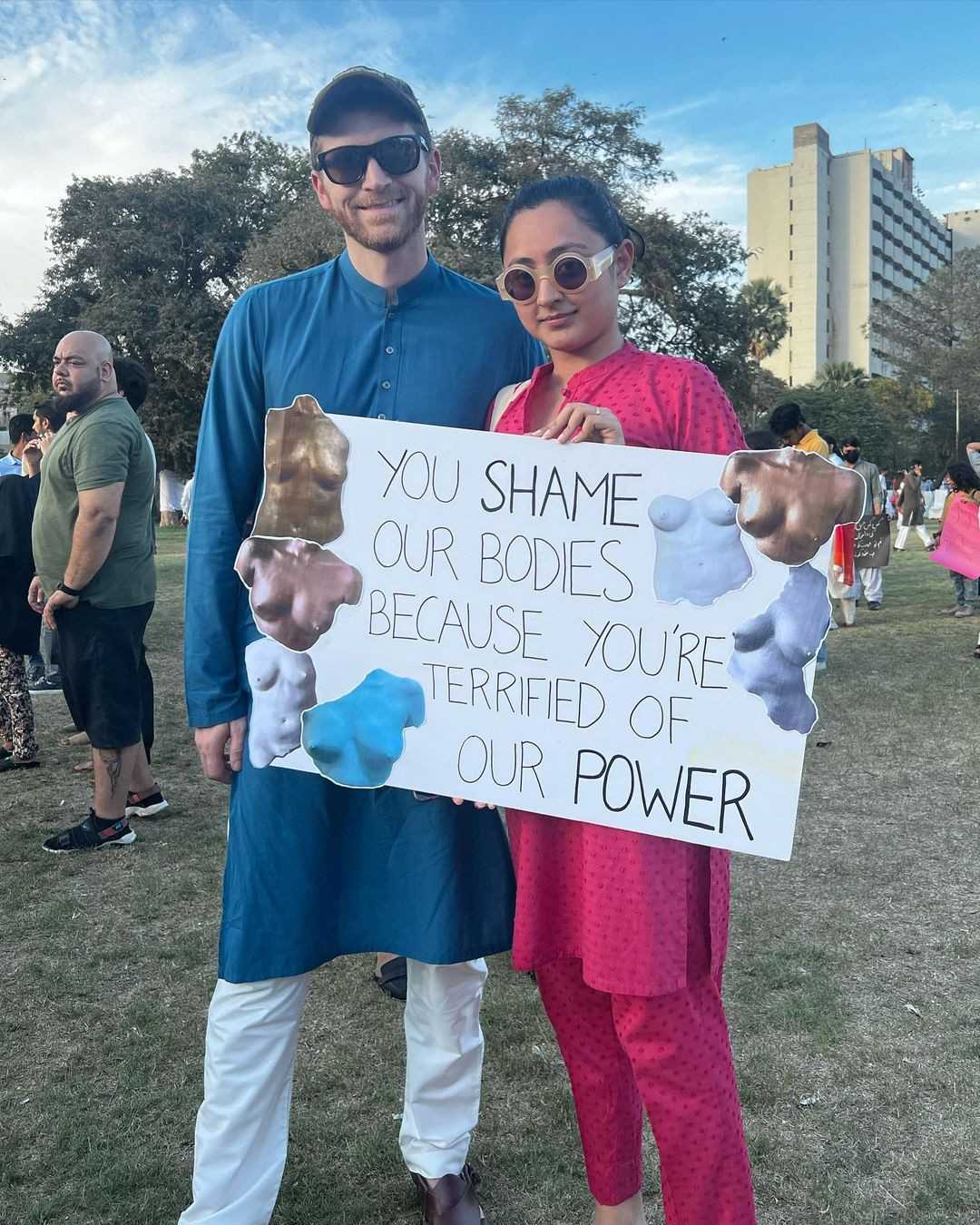 "We're anarchists," explained Gul Mohammad Mangi holding a placard that read, “Afghan women should get rights to education and work.” Mohammad, who was from the Workers Solidarity Federation, came along with a team that held posters for trans, women, and refugee rights.
"We're anarchists," explained Gul Mohammad Mangi holding a placard that read, “Afghan women should get rights to education and work.” Mohammad, who was from the Workers Solidarity Federation, came along with a team that held posters for trans, women, and refugee rights.
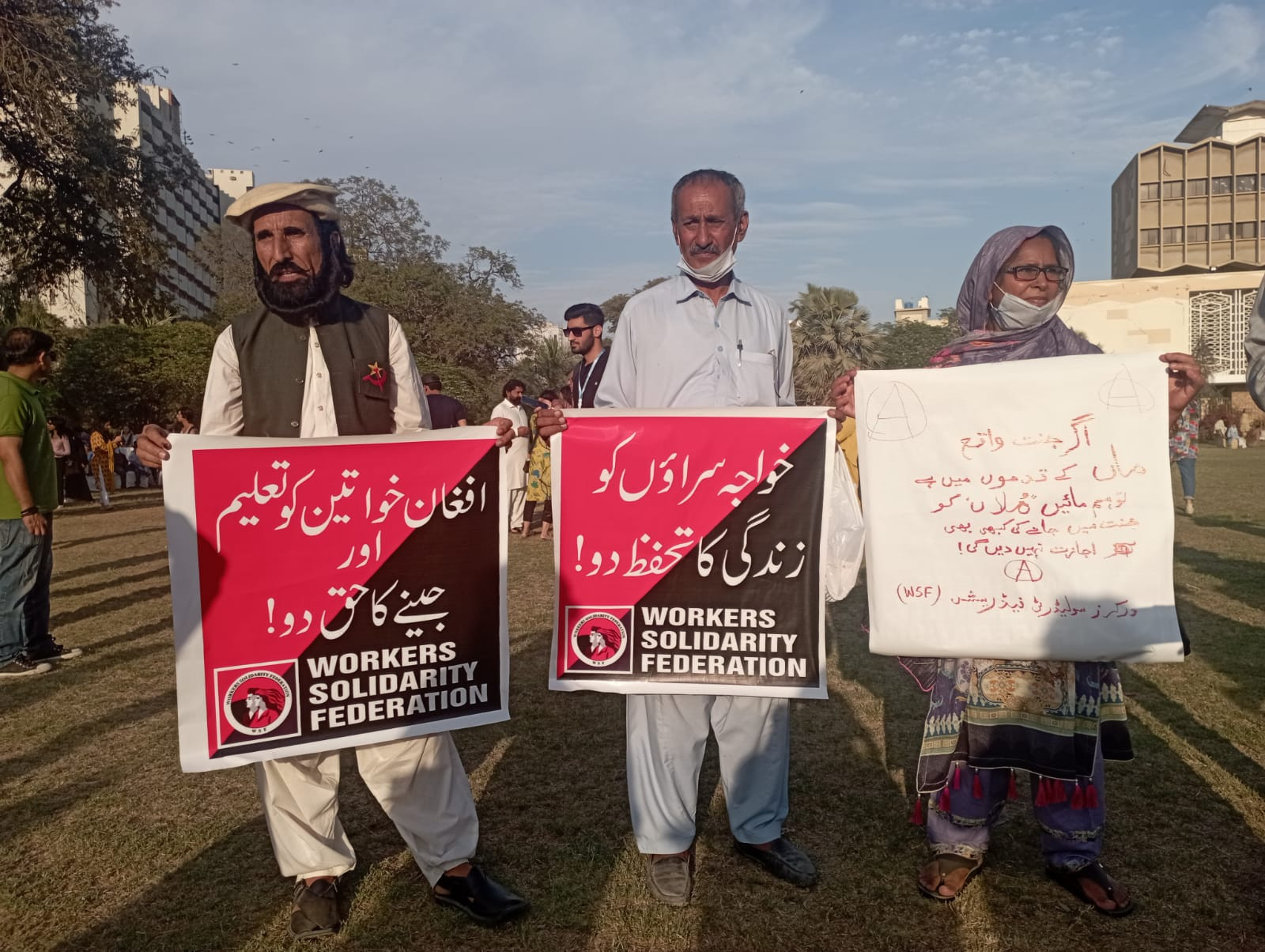 Talking about how he’s a regular attendee of the march, he told The Express Tribune, "We're in 100% solidarity with women. Until there is equality in Pakistan, the term 'freedom' has no meaning. Any type of disparity among us is a sign of slavery, therefore, we insist that all women be given their rights and the opportunity to stand on their feet independently."
Talking about how he’s a regular attendee of the march, he told The Express Tribune, "We're in 100% solidarity with women. Until there is equality in Pakistan, the term 'freedom' has no meaning. Any type of disparity among us is a sign of slavery, therefore, we insist that all women be given their rights and the opportunity to stand on their feet independently."
Have something to add to the story? Share it in the comments below.



1732256278-0/ellen-(1)1732256278-0-165x106.webp)
1725877703-0/Tribune-Pic-(5)1725877703-0-165x106.webp)

1730874433-0/Copy-of-Untitled-(64)1730874433-0-270x192.webp)
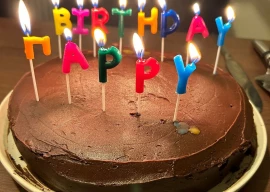
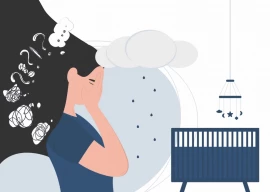
1729930993-0/WhatsApp-Image-2024-10-26-at-08-52-06-(2)1729930993-0-270x192.webp)
1729844217-0/WhatsApp-Image-2024-10-17-at-11-58-38-(1)1729844217-0-270x192.webp)






COMMENTS
Comments are moderated and generally will be posted if they are on-topic and not abusive.
For more information, please see our Comments FAQ